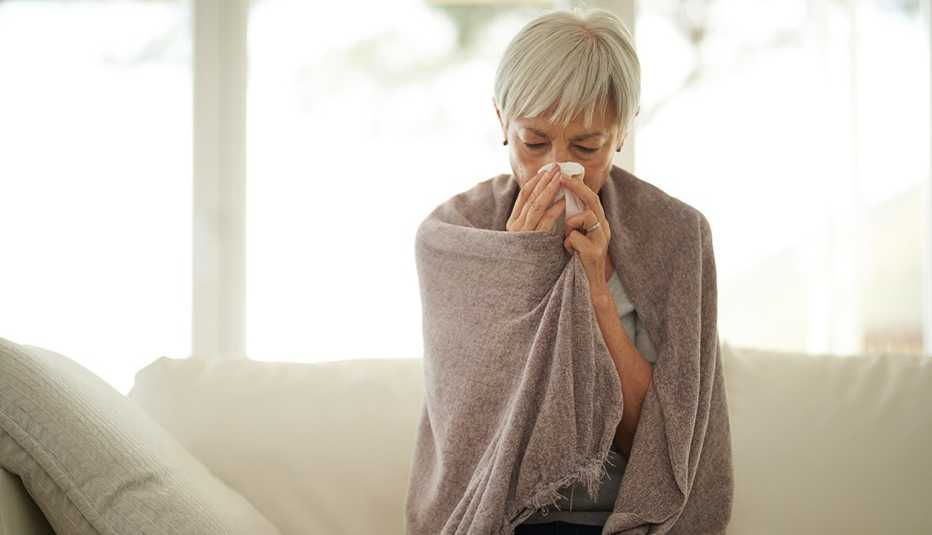AARP Hearing Center
| An airplane offers the perfect petri dish for germs to thrive: close quarters, frequent passenger turnaround and recirculated air. And certain areas — the ones we're most likely to touch, as it happens — are especially icky: According to a study by the folks at Travelmath, who collected bacteria samples on flights at five different airports, the “hot spots” inside the cabin include the tray table — that was the worst offender, worse than bathrooms — overhead vent, bathroom flush button and lock, and seatbelt buckle. The seat pocket is another germ magnet (think soggy tissues and dirty diapers). Note that at the airport, drinking fountain buttons are the dirtiest.
"Airplanes not only create an environment that viruses thrive in,” says Nicholas Testa, a Los Angeles-based emergency medicine physician and chief physician executive for the Southwestern Division of CommonSpirit Health. “They also make it easier to transfer germs and viruses from person to person."
Here are nine ways to stay healthy when you fly:
1. Clean and sanitize surface areas
Aircraft cabins are usually cleaned when the plane stays overnight at the airport. Because the flu virus can last up to 24 hours on hard surfaces, germs can linger between flights. “About 80 percent of all infectious diseases we actually introduce to ourselves,” says Mark Gendreau, chief medical officer of Beverly and Addison Gilbert Hospitals. “You walk by and touch a contaminated surface then unwittingly touch your eyes, nose and mouth. My favorite factoid: Humans touch their faces about 200 times a day."
On all the typically germy surfaces, especially tray tables, use a hand-sanitizing gel (with at least 60 percent alcohol). “When you get settled in your seat, put several drops on a Kleenex and wipe down those areas that you're going to touch,” Gendreau says. Of course, disinfectant wipes work, too. Wash your hands frequently throughout your flight, particularly when you lower the tray table to eat and after you return from the bathroom — even if you've washed your hands with warm, soapy water. “There have been contamination issues with the water in the bathrooms on aircrafts,” he notes.
BTW: Those seat pockets can be tricky to clean, thanks in part to the porous fabric. You may want to use your own bag under the seat to store your reading materials.
2. Help your immune system
If you're flying during flu season, make sure you've had the flu shot. Influenza spreads by droplets made when people sneeze or cough, even from as far away as six feet — close enough to cause havoc when you're crammed in with a crowd. While there's no guarantee that the vaccine will prevent the flu, it lowers your chances of getting it, and if you do contract it, your illness is likely to be less severe.


































































